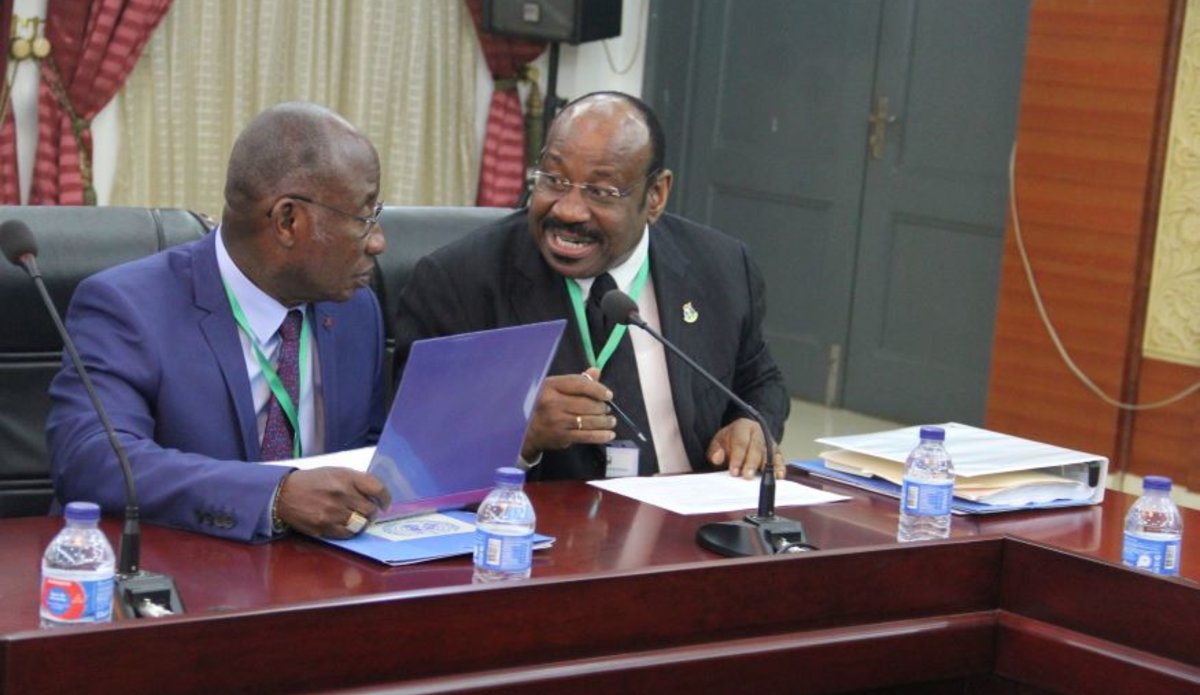Outcome of visit to Guinea-Bissau “totally positive” - Security Council President
The mission was co-led by Ambassador Kacou Houadja Léon Adom of Côte d’Ivoire and Ambassador Anatolio Ndong Mba of Equatorial Guinea, which holds the Council presidency during February.
Addressing the media at the Bissau-Guinean Presidency Palace, Ambassador Anatolio Ndong Mba said that: “The outcome of the visit is totally positive. All actors, political, authorities, civil society, women and youth of Guinea-Bissau were very receptive. We leave with great optimism. The party of democracy which started today with the beginning of the electoral campaign will certainly end with the celebration of the election on 10 March.”
Regarding UNIOGBIS and the recommendation of the Secretary-General to reconfigure the United Nations presence in Guinea-Bissau, journalists raised the fate of the UN Mission. “The vulnerability is normal in a moment like this…as for UNIOGBIS [closing] the issue is under evaluation by the Security Council. I cannot give you a definitive answer. If UNIOGBIS will exit or not it is up to the Security Council to decide in New York”, Anatolio Ndong Mba responded.
Carried out within the framework of Council resolution 2404 (February 2018) and the SC press statements dated 21 February, 7 September and 27 December 2018, the visit aimed to (a) Engage with key stakeholders involved in the political crisis in Guinea-Bissau and advocate strongly for: (i) political dialogue towards the implementation of the Conakry Agreement and the ECOWAS road map within the agreed timelines; (ii) preparing for and conducting free and fair elections; (iii) holding the legislative elections on 10 March and presidential elections thereafter in 2019, in line with the legal framework.
Security Council also had to analyze the consequences of political tensions for the living conditions of the populations in Guinea-Bissau; and evaluate the compliance of UNIOGBIS with its mandate, in support of the Guinea-Bissau authorities, to contribute to lasting peace and stability in the country, including through support for strengthening democratic institutions and assistance to national authorities and stakeholders to promote and protect human rights.
The Council will hold a briefing on the visiting mission to Côte d’Ivoire and Guinea-Bissau on 20 February.
By the end of the month, the Security Council is expected to discuss and decide on the renewal of UNIOGBIS mandate, which expires on 28 February 2019.
 UN
UN





